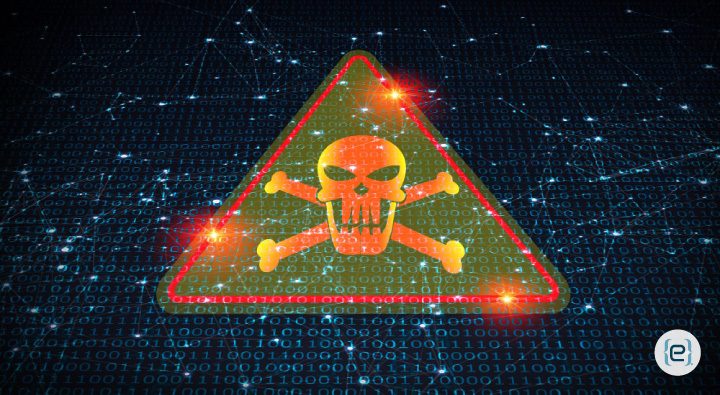Increasingly, email communication is playing a pivotal role in business operations, facilitating collaboration, customer engagement, and information exchange. However, the prevalence of email spoofing poses significant Cyber Security risks to businesses of all sizes. Spoofing occurs when malicious actors impersonate legitimate email addresses or domains to deceive recipients into disclosing sensitive information, initiating fraudulent transactions, or spreading malware. To combat this threat effectively, businesses can implement anti-spoofing rules as part of their comprehensive cybersecurity strategy.
Understanding Email Spoofing and Its Risks
- Definition of Email Spoofing: Email spoofing involves forging the sender’s address or domain in an email header to appear as if it originates from a trusted source, such as a colleague, client, or reputable organization. Spoofed emails often mimic legitimate communication to trick recipients into taking actions that benefit the attacker.
- Risks Associated with Email Spoofing: Email spoofing can lead to various cybersecurity incidents, including:
- Phishing Attacks: Malicious emails impersonate trusted entities to deceive recipients into clicking on malicious links, downloading attachments containing malware, or disclosing confidential information.
- Business Email Compromise (BEC): Attackers spoof executive or vendor email addresses to request fraudulent payments, transfer funds, or initiate unauthorized transactions, resulting in financial losses.
- Reputation Damage: Spoofed emails can damage your organization’s reputation. And if sensitive information is compromised or fraudulent activities occur, trust among customers, partners, and stakeholders may erode.
Importance of Anti-Spoofing Rules
- Prevention of Phishing Attacks: Implementing anti-spoofing rules helps to detect and block spoofed emails before they reach your inboxes. By validating sender authenticity and domain ownership, anti-spoofing measures mitigate the risk of phishing attacks and protect against malicious content.
- Mitigation of Business Email Compromise (BEC): Anti-spoofing rules verify the legitimacy of email senders, particularly for high-risk transactions or sensitive communications. By enforcing sender authentication protocols, you can prevent BEC scams and unauthorized access to financial resources.
- Compliance with Email Security Standards: Adhering to anti-spoofing rules aligns with industry best practices and email security standards, such as Domain-based Message Authentication, Reporting, and Conformance (DMARC), Sender Policy Framework (SPF), and DomainKeys Identified Mail (DKIM). These protocols validate sender identities and ensure email integrity across domains.
- Protection of Brand Reputation: Effective anti-spoofing measures safeguard your brand reputation by preventing cybercriminals from exploiting trusted email domains for fraudulent purposes. By maintaining email authenticity and trustworthiness, you can enhance customer confidence and maintain strong relationships with stakeholders.

Implementing Anti-Spoofing Rules: Best Practices
- Deploy SPF, DKIM, and DMARC Protocols:
- SPF (Sender Policy Framework): Specifies authorized mail servers for sending emails on behalf of a domain, preventing unauthorized senders from spoofing legitimate addresses.
- DKIM (DomainKeys Identified Mail): Adds digital signatures to your email headers, verifying message integrity and authenticating sender identities, reducing the risk of email tampering and forgery.
- DMARC (Domain-based Message Authentication, Reporting, and Conformance): Provides policies for handling emails that fail SPF and DKIM checks, enabling domain owners to specify actions (e.g., quarantine or reject) for unauthorized emails.
- Configure Email Filtering and Authentication Tools:
- Implement advanced email filtering solutions to detect suspicious content, attachments, and URLs commonly associated with phishing attempts.
- Enable multi-factor authentication (MFA) for email accounts to add an extra layer of security against unauthorized access and credential theft.
- Educate Employees on Email Security Awareness:
- Conduct regular training sessions to educate your employees about recognizing phishing indicators, verifying sender identities, and reporting suspicious emails to IT or security teams.
- Promote a culture of cybersecurity awareness and encourage vigilant email practices, such as scrutinizing URLs, avoiding clicking on unknown links, and verifying unexpected requests through alternate communication channels.
- Monitor and Evaluate Security Incidents:
- Implement robust monitoring and incident response procedures to detect and respond to potential email spoofing incidents promptly.
- Conduct periodic security assessments, penetration testing, and vulnerability scans to identify and remediate vulnerabilities in email security configurations.
Real-World Applications and Benefits
- Case Study: A financial services firm implements SPF, DKIM, and DMARC policies to protect client communications and financial transactions from email spoofing. By enforcing strict email authentication standards, the firm mitigates phishing risks, enhances client trust, and maintains regulatory compliance with industry standards.
- Industry Recognition: Leading Cyber Security organizations like eMazzanti recommend businesses adopt anti-spoofing measures as essential safeguards against evolving email threats. By prioritizing email authenticity and integrity, you demonstrate commitment to data protection and cybersecurity resilience.
When bad actors deploy email spoofing, they pose significant Cyber Security risks to businesses like yours. Risks range from phishing attacks to financial fraud and reputation damage. Implementing anti-spoofing rules– such as SPF, DKIM, and DMARC protocols— is essential for verifying sender identities, mitigating phishing risks, and protecting brand reputation. By adopting comprehensive email security measures and educating employees on email security best practices, you can enhance defenses against malicious email threats and maintain a secure digital environment. Partnering with a Cyber Security expert like eMazzanti, ensures proactive monitoring, rapid incident response, and ongoing support to safeguard your business against emerging cyber threats. Together, we can strengthen your email security posture and empower your organization to thrive securely in today’s interconnected world.







